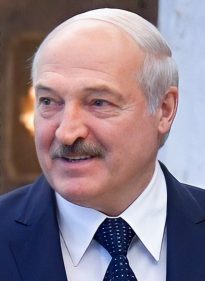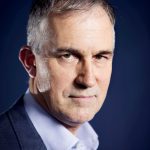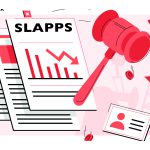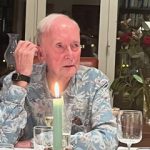Alexander Lukashenko, president of Belarus and avid hockey fan, opened 2021 with a slap shot in the face – on January 18 the International Ice Hockey Federation stripped Belarus of its right to co-host the 2021 world championships.
The decision came as Lukashenko still seemed stuck in an ongoing power standoff with protesters who mounted regular mass demonstrations against elections on August 9 2020 widely considered as rigged, and against Lukashenko’s subsequent crackdown.
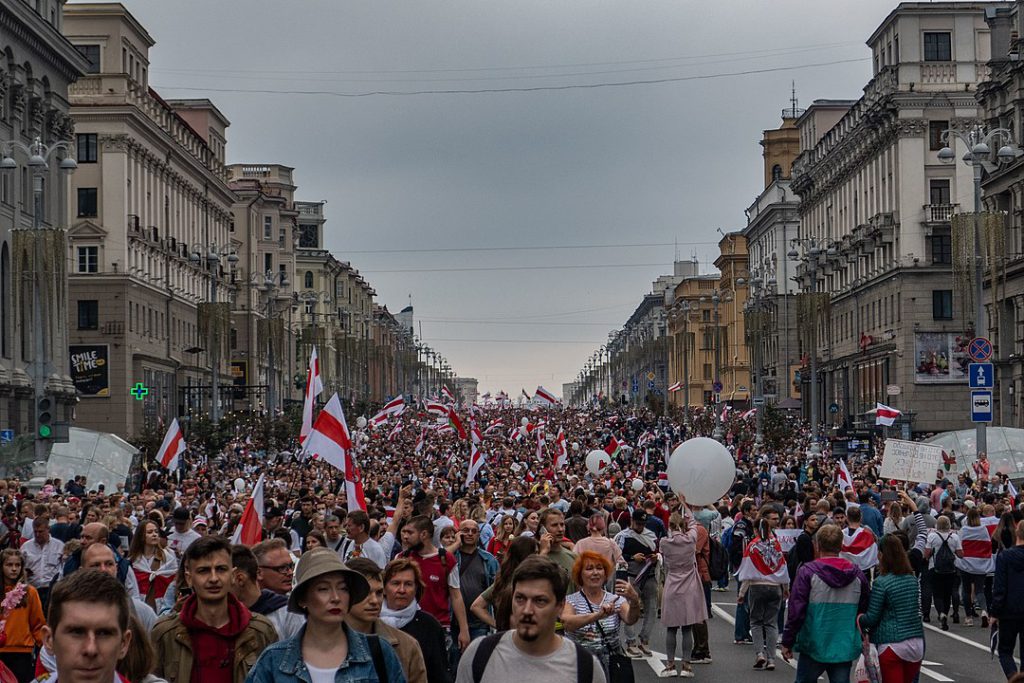
A few weeks earlier, on the final day of 2020, he was essentially forced to promise a referendum on his own suggested constitutional reforms and called a congress of his supporters to pass them in February. Nearly a year later the referendum – which hadn’t happened by the end of 2021 – was re-promised for February 2022.
A month earlier, at the end of November 2020, Lukashenko hinted he might be prepared to step down even as the country still seemed stuck in an ongoing power standoff with opposition protesters calling for new elections.
There was even some speculation that Russia was losing patience with its troubling neighbour.
Protests had continued regularly as Lukashenko tried to reassert his power, apparently retaining the support of police and security forces and at least some state enterprises and workers, reimposing a crackdown on protesters, questioning and imprisoning members of the Coordination Council set up by opposition activists in an attempt to negotiate a transition of power, and pressuring local and foreign reporters.
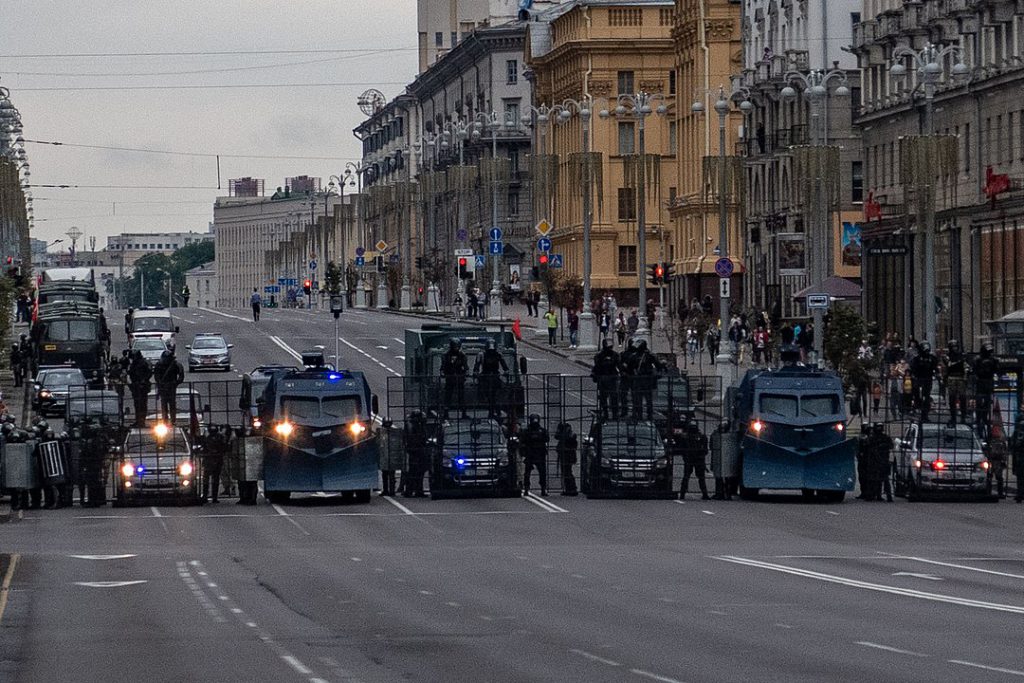
In the last week of October the opposition had called for a general strike.
But there were mixed signs of its success or failure.
And, unsurprisingly, mixed signals from Lukashenko who has held on to power with a mixture of populism and authoritarianism as the country’s first and only president since “independence” in 1994 after the dissolution of the Soviet Union.
He partially closed the country’s land borders and revamped his security forces team.
And he arranged a surprise swearing in for himself in a new term as president, sparking further protest demonstrations.
In September he also got a major loan offer from Russian president Vladimir Putin a day after protesters took to the streets to oppose it and faced criticism at the UN human rights council.
As massive demostrations and arrests continued through August and September, Lukashenko, the Belarus opposition, Russia, the EU, and neighbouring Baltic states all moved to position themselves for influence.
The EU on August 19 2020 agreed on sanctions against Lukashenko’s government and backed the widespread protests.
Baltic states imposed their own sanctions. Lukashenko moved tanks to his western borders with the EU’s Baltic states and ordered his interior ministry to stop the protests.
Opposition figurehead Sviatlana Tsikhanouskaya – in refuge in neighbouring Lithuania – announced a council to coordinate the transfer of power.
German Chancellor Angela Merkel said Lukashenko should be part of talks for a political settlement and Lukashenko himself had said earlier he could hold new elections and consider changes to the constitution.
But it was Russia that always held the key cards and played those close to the chest.
First it warned EU countries not to interfere and earlier agreed to Lukashenko’s request for help.
And Russia kept a low profile despite much reporting about its plans – ranging from speculation about losing patience with Lukashenko through opposition hopes for support from new U.S. President Joe Biden, along with earlier analysis of Vladimir Putin’s options from the Washington-based Council on Foreign Relations, the Washington Post-owned Foreign Policy, and even from inside Russia in the Moscow-based English language Moscow Times.
Throughout the power struggle over the future of the land between Russia and the EU the media – both outside and inside Belarus – played a key role.
Vladimir Putin’s reactions mostly seemed low key as his government had some difficult choices. He already faced internal problems from opposition politicians and protests in his own far east – particularly from Alexei Navalny, Putin’s biggest critic, who was poisoned, released by Russia and flown urgently to Germany for treatment, and then rearrested when he returned to Russia.
And the Navalny drama at one point specifically involved Belarus. Germany said Navalny was poisoned by a Novichok chemical agent – the same poison used on former Russian agent Sergei Skripal in the UK – and Russia needed to answer questions. President Lukashenko stepped in to support his benefactor and ally Vladimir Putin by claiming he had intercepted German phone calls proving the Navalny poisoning claim was fake.
In the meantime Russia was reinforcing close ties with Belarus and potentially seeking the economic benefits it had pursued for some time.
The United States pretty well stayed on the sidelines aside from sanctions on eight Belarus officials, leaving neighbouring Baltic states, the EU, and the Belarus opposition calling for action but constrained in their ability to take it.
Hockey slapshot
Another harsh crackdown – Human Rights Watch annual report
Protests continue into the new year 2021
AEJ demands release of journalists – January 2021
Referendum re-promised
Referendum?
Lukashenko calls congress
Pro Russia party?
Russia losing patience?
Stepping down?
General strike
Mixed support
Lukashenko shakes up security team
Lukashenko swears self in
Russian loan
Media plays key role
Belarus and the media
AEJ call for international action to stop media suppression – September 2020
UN Human Rights Council warning
Protests continue
EU agrees on sanctions
EU backs protests
Baltic states impose sanctions
Tanks on the borders
Opposition form council
Merkel calls for dialog
Lukashenko ready to go? Opposition leader ready to lead
Opposition hopes in Biden
Council on Foreign Relations analysis
Foreign Policy
A view from inside Moscow
Russia warns against meddling
Russia ready to help
Russia response remains low key
Russia’s difficult choices
Russia internal problems
Russian Opposition watches Belarus
The Navalny poisoning
Putin’s biggest critic
More on Navlany
Germany says Novichok used
Lukashenko says Novichok claim fake
Russia reinforces close ties
Russia seeks benefits
Trump’s USA on sidelines
US sanctions Belarus officials
The view from the Baltics
The Belarus opposition
Regular protests
Police support for Lukashenko
More crackdowns
Imprisoning the opposition council
Pursuing reporters

